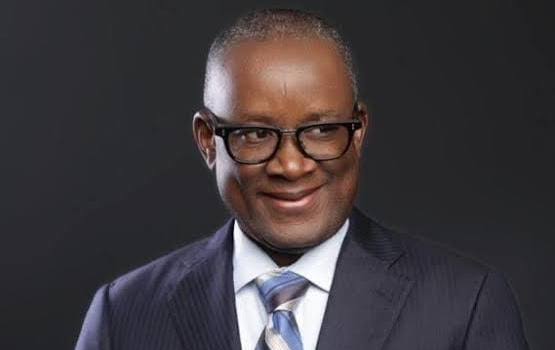
The Paris 2024 Olympic Games have concluded, and I acknowledge that our performance fell far short of what it should have been. It did not meet the goals, expectations, and hopes of Nigerians said the minister.
I extend my apologies to our fellow citizens and commit to reflecting on what went wrong as we now look ahead to the upcoming Paralympic Games, scheduled for August 28 to September 8, 2024.
When I took on the role of Minister of Sports Development in August 2023, I was immediately tasked with overseeing four major international competitions: the AFCON, the African Games, the Olympic Games, and the Paralympic Games, all within a few months. I was also reminded that the Olympics is the pinnacle of global sports competition, typically requiring at least four years of preparation. During discussions with the Ministry’s management, I learned that, with less than a year to go, preparations for the Olympics had yet to begin.
In true Nigerian fashion, we resolved to do everything possible to maintain our country’s international sports reputation. Our goal was to replicate, if not surpass, the success of the Atlanta 1996 Games. With this in mind, we adopted a progressive approach to enhance the performance of our athletes and coaches. In my first week, I asked all National Sports Federations to submit their plans and programs. I also conducted a nationwide inspection of our sports facilities.
Following this, I established a Ministerial Podium Performance Advisory Committee, composed of experienced sports performance experts, to guide our preparations. At that point, we had barely qualified for the Olympics in any sport. While focusing on AFCON and the African Games—both occurring in quick succession—our athletes also competed in Olympic and Paralympic qualification tournaments. This situation forced our athletes to peak multiple times within a short period.
I was informed that athletes from many other countries had qualified almost a year earlier and had already tailored their training regimens for the Olympics. Despite this, we remained undeterred. I convened several meetings with the Presidents of the National Sports Federations, their Technical Directors, and Secretaries General. These meetings reviewed our competition preparations, with the Ministerial Podium Performance Advisory Committee participating to refine methodologies and training strategies, given the time constraints.
After the African Games, further meetings were limited to Federations with strong prospects for Olympic qualification. Each Federation projected potential medal outcomes, though many athletes were still striving to qualify, a process that continued until about June 2024. It became apparent that Federations prioritized qualification over actual preparation for the Games—a pattern that seems to have persisted over time and needs to change.
Once the qualification period ended, the responsibility for selecting athletes and coaches rested entirely with each Federation. Attempts to address selection concerns, following complaints, were met with strong resistance and defense from the Federations.
To achieve our objectives, we approved both onshore training in various locations across the country and offshore training camps in Saarbrucken, Germany, and Sevilla, Spain. Ten of the eleven sports teams trained in Germany. The choice of facilities in Germany was based on positive recommendations from the Ministry team, including the President of one of our Federations, a former world champion and Olympic gold medalist, who is well-acquainted with Olympic-standard facilities and equipment.
At the training camp, the Ministerial Podium Performance Advisory Committee provided scientific preparation and mental strength training support. The high quality of their involvement was confirmed by independent sources, including athletes, coaches, and team administrators.
Throughout this process, President and Commander in Chief Bola Ahmed Tinubu ensured that funding was not an issue. Athletes received their competition requirements, allowances were paid promptly, and training grants were distributed to all athletes. I remained available to address any concerns throughout the competition. Given all these efforts, the disappointing performance of our team is perplexing, and we owe Nigerians an explanation.
As a responsible organization, we have already initiated a review process. We will thoroughly assess the competition readiness of each athlete, including their injury and medical histories within the bounds of patient confidentiality. The roles of coaches and administrative staff will also be scrutinized.
There are undoubtedly many lessons to be learned from our performance, and we must improve in all aspects. The last time we returned from the Olympics without a medal was in 2012. In the following two Olympics, we secured a bronze medal in 2016 and both a silver and bronze in 2020. As a nation, we deserve better. Let us transform the disappointing outcome of the 2024 Olympics into a significant positive for Nigerian sports.